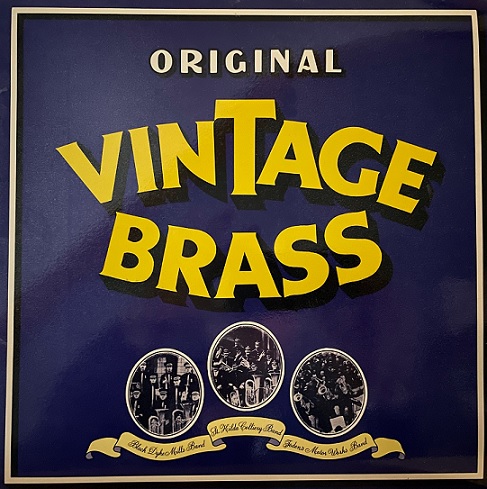
The stamp of greatness does not fade by the passing of time. Brush away the accumulation of dust and the long forgotten imprint once again reveals the identity of 24 carat gold.
That’s why it’s well worth seeking out this ‘Vintage Brass’ LP, first released in 1979.
True sound
Produced by Geoffrey Brand courtesy of EMI records (210 was the Strand Street address of publisher R Smith & Co) it features a triptych of the finest bands and soloists of their time. St Hilda circa 1926; Foden’s from 1935 – 1938 and Black Dyke in 1942.
Brand’s aim was “to retain as much as possible of the true sound of the bands” – with care and attention paid in ‘cleaning up’ the original 78 records and retaining the mono recording process. The chap who did it – John R.T. Davies, did a fine job.
They are of course snapshots: The original recordings were made in a single take and of only up to three minutes in duration, so there is some rather clumsy musical amputation undertaken in places.
What remains however still retains its vibrant lifeblood - the liberal use of vibrato and pliant phrasing adding unmistakably to the sense of joyousness about the performances.
Dramatic impulses
St Hilda make ‘Life Divine’ (conducted by the composer), ‘Freedom’ and ‘Epic Symphony’ sound like silent film scores with their dramatic impulses and urges – whilst Black Dyke delivers a no-nonsense rendition of ‘Queensbury’ (which at the time had been their signature tune for just over a decade) as if hewn from Malham Cove limestone.
St Hilda make ‘Life Divine’ (conducted by the composer), ‘Freedom’ and ‘Epic Symphony’ sound like silent film scores with their dramatic impulses and urges – whilst Black Dyke delivers a no-nonsense rendition of ‘Queensbury’ (which at the time had been their signature tune for just over a decade) as if hewn from Malham Cove limestone.
Prime capture
The soloists are caught in their prime: A rare recording of Alex Mortimer (the only solo recording he made) makes ‘Drinking’ seem as if he is literally supping the bottom of the pint glass dry of its last drops of beer.
Harry Mortimer, the nonpareil of cornet players, is every bit as capricious as the other waspish ‘Zelda’ of the immediate post war age – F. Scott Fitzgerald’s glamourous socialite wife, whilst his great contemporary, Jack Mackintosh, with blazing Vickers Gun brilliance on a unnamed military band recording of ‘Carnival of Venice’, and Jack Pinches giving ‘The Acrobat’ a comedic dignity in virtuosity, add to the enjoyment.
However, even their brilliance is dimmed by Foden’s under Fred Mortimer’s informed musical gestures, as they exhibit a wonderfully lean, smoothly balanced palette of musicality that seems years ahead of its time: ‘Kenilworth’ has splendid grandeur and pride, ‘The Severn Suite’ flows with stately reserve.
It is playing that remains as glorious today as it was when recorded for posterity.
Iwan Fox
Play List:
Side 1:
1. Queensbury (Kaye)
Black Dyke Mills Band
Conductor: Arthur O. Pearce
2. Life Divine (Cyril Jenkins) (parts 1 & 2)
St Hilda Colliery Band
Conductor: Cyril Jenkins
3. Carnival of Venice (Arban)
Unnamed Military Band (c. 1935)
Soloist: Jack Mackintosh
4. Drinking (Bilton)
Foden’s Motor Works Band
Conductor: Fred Mortimer
Soloist: Alex Mortimer
5. Symphony No 1: Freedom (Bath)
St Hilda Colliery Band
Conductor: James Oliver
Side 2:
1. Heroic March from Epic Symphony (parts 1 & 2)
St Hilda Colliery Band
Conductor: James Oliver
2. Zelda (Code)
Foden’s Motor Works Band
Conductor: Fred Mortimer
Soloist: Harry Mortimer
3. Kenilworth (Bliss) (parts 1 & 2)
Foden’s Motor Works Band
Conductor: Fred Mortimer
4. The Acrobat (Greenwood)
Black Dyke Mills Band
Conductor: Arthur O. Pearce
Soloist: Jack Pinches
5. The Severn Suite (Elgar) (parts 1 & 2)
Foden’s Motor Works Band
Conductor: Fred Mortimer









